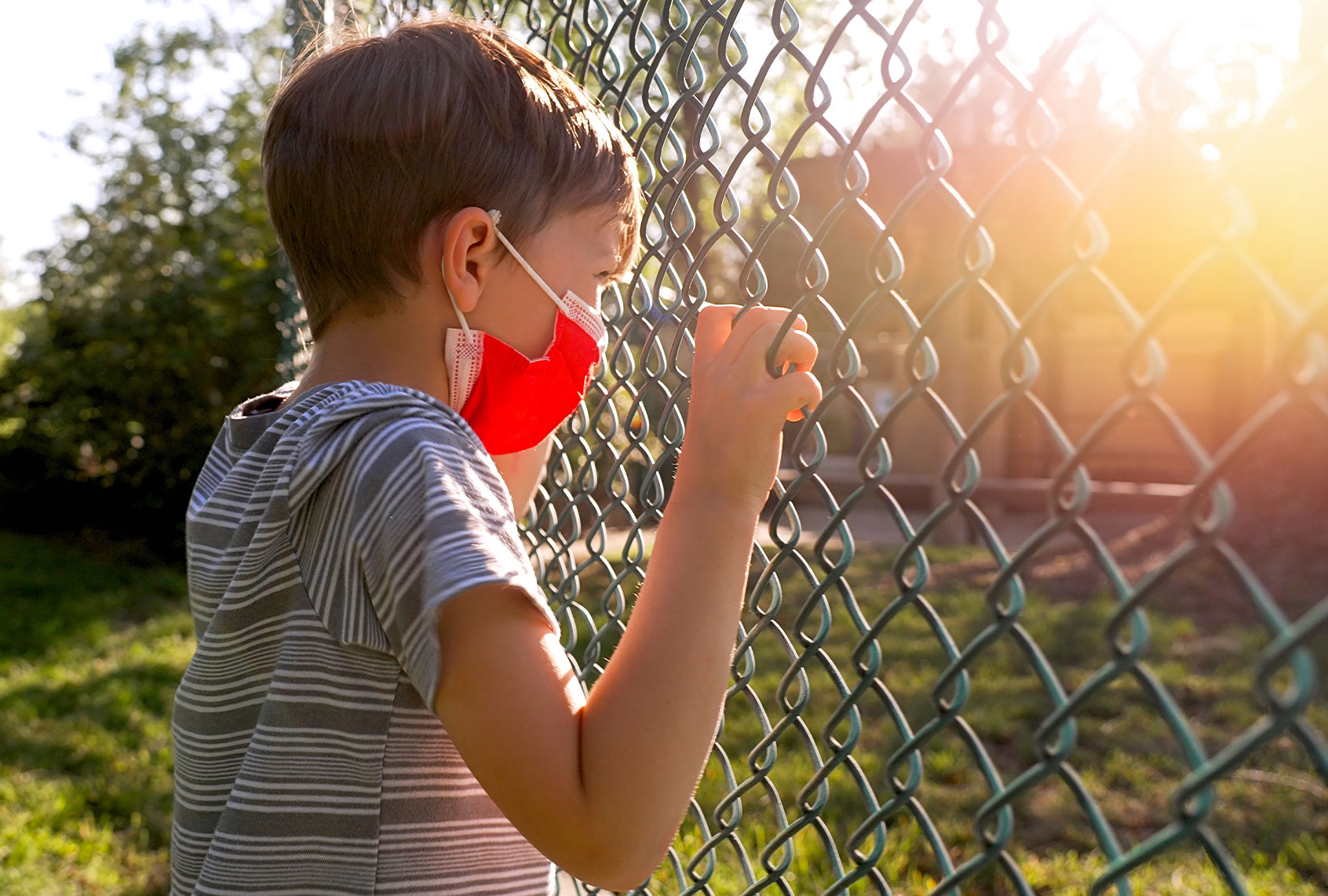After an all-too-brief summer respite, the trifecta of the highly contagious delta variant, low vaccination rates, and large unmasked gatherings has led us back to a place we are all too familiar with: An increase in the number of COVID-19 cases filling our ICUs once again. This time, however, children are falling ill in unprecedented numbers. Now, just as doctors, hospitals, and communities are reeling from the effects of the obvious pandemic, they threaten to be overwhelmed with a second, quieter threat of childhood anxiety and depression. With appropriate attention and intervention, however, parents can protect their children and get them the help they need.
This “second” pandemic started slowly, when kids and families were socially distanced last year. If concerns about COVID kindled it, then it caught flame as children lost the very buffers that help guard against mental illness, such as athletics, parties, graduations, and many forms of connection with extended family and friends. Families struggled not only with the complexities of online learning: they fought to get to work, take care of their kids, and plan for a now-uncertain future. Anxiety rates in children and teens have skyrocketed, as emergency room visits for pediatric mental health concerns rose by over 70%.
Even more disturbing are rates of suicidality, which has surged among the young. Mental health professionals report being overwhelmed with the numbers of patients in the system, where many don’t even have access to mental help, and inequities in care are the rule. Pediatricians are now seeing more kids with mental health issues than ever before; the American Academy of Pediatrics (AAP) recently released a policy encouraging doctors to screen for mental health issues at every visit.
The good news is that parents can form the first line of defense between children and mental health problems, even during these times of unprecedented change.
The first step is to identify and be alert to potential signs. Being more attentive and talking with your kids can go a long way. Do they seem down? Are they less interested in their favorite activities? Are they sleeping or eating less or more? Do they complain of headaches or stomach aches? These changes can all be clues that your child or teen is struggling to adjust. Don’t assume you know how they’re feeling; ask. You may be surprised by what you hear.
Families can also take a cue from the world of business and focus on managing expectations. Remind your child that this year is likely to be full of changes. We are already seeing large-scale quarantines as kids return to school, and the delta variant is likely to cause major disruptions almost everywhere as public health officials fight its spread. It is hard to be on a seemingly nonstop rollercoaster. But understanding that change is to be expected can help anxiety.
Another tactic to promote resiliency in children is to focus on the positives. The friends they do see, the teachers they meet, the events that happen are so important — while acknowledging their feelings of loss and frustration when things don’t go as planned. Even though we all may have to adjust some of our family’s cherished traditions, we can also take this opportunity to craft new habits that may become traditions long after the pandemic has passed.
Kids, like adults, want a sense of control. Like us, sometimes they find it by obsessing on bad news, getting caught in the cycle of “doom-scrolling,” or watching the news 24-7. Help them put down their devices and limit their exposure to crisis coverage. In fact, constant exposure to bad news can even make adults feel anxious. Make sure they understand what they need to do to be safe, but make sure they take some time to just be kids.
Remember our bodies and our minds are not separate but are in constant communication. Habits that help our physical health — getting lots of exercise, sleeping the right amount at night, eating healthy foods — also help with depression and anxiety. Help your kids get outside as much as possible; exposure to nature alone can improve mental health!
And one oft-overlooked aspect of prevention of anxiety, depression, and mental health issues is self-care. Caregivers, families, and parents have been overwhelmed with the rough waters from the pandemic, and the turbulence of an ever-changing environment; make sure that there is time set aside for your own health, which includes not only exercise and sleep, but the importance of social connection. Take the opportunities to take that jog or walk, or that outdoor coffee with a few friends. When caregivers feel calm, the kids do too.
As much as parents want to fix everything for our children, it is also critical we recognize when we need more help. Be willing to contact your child’s doctor if you’re worried. The AAP has a wide variety of resources to help parents with mental health, and they can also help if you’re looking for therapy. Don’t be afraid to ask if your child has considered suicide. If the answer is “yes,” you can start by contacting the National Suicide Prevention Helpline at 800-273-8255.
If we’re lucky, everyone will pull together to get vaccinated, mask up, physically distance, and defeat this wave of COVID long before next summer. In the meantime, however, we can act right now to help our kids weather the mental health pandemic, help our families build resilience, and enjoy just being kids.
Want more health and science stories in your inbox? Subscribe to Salon’s weekly newsletter The Vulgar Scientist.


